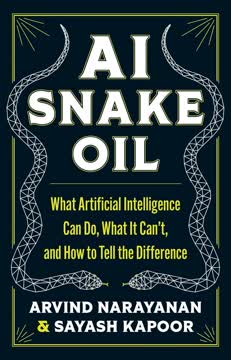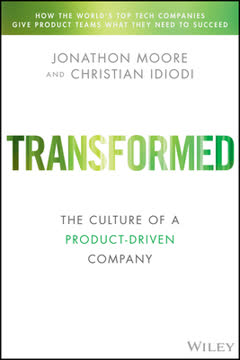Key Takeaways
1. Build trust through candor, integrity, and genuine care
"There was no gap between his statements and fact. They were always the same."
Trust is foundational. Bill Campbell understood that trust is the bedrock of effective relationships and high-performing teams. He built trust through:
- Relentless honesty and candor
- Consistently demonstrating integrity
- Showing genuine care for people's well-being
Campbell practiced "free-form listening," giving people his undivided attention and asking probing questions to understand their perspectives fully. He delivered tough feedback directly but compassionately, always coupling criticism with care. By being trustworthy himself and extending trust to others, Campbell created an environment where people felt safe to be vulnerable, take risks, and do their best work.
2. Cultivate team-first attitudes and high-performing communities
"You can only really succeed and accomplish things through the collective, the common purpose."
Teams outperform individuals. Campbell believed that great achievements come from high-performing teams, not lone geniuses. He fostered team-first attitudes by:
- Prioritizing collective success over individual glory
- Encouraging peer relationships and collaboration
- Building communities within and outside work
Campbell organized regular social gatherings, trips, and events to strengthen bonds between team members. He looked for candidates with "smarts and hearts" – not just individual brilliance, but the ability to work well with others. By creating strong communities, Campbell ensured that teams could tackle big challenges together and support each other through difficulties.
3. Coach for excellence: Listen, challenge, and support growth
"If you're a great manager, your people will make you a leader. They acclaim that, not you."
Great managers are great coaches. Campbell saw his role as helping people reach their full potential. His coaching approach included:
- Listening intently and asking probing questions
- Challenging people to go beyond their self-imposed limits
- Providing unwavering support and encouragement
He pushed people out of their comfort zones while expressing confidence in their abilities. Campbell believed in "telling people stories about why they are doing it" rather than simply giving orders. By coaching individuals to excel, he built strong teams and developed future leaders.
4. Lead with love: Bring compassion and humanity to work
"To care about people you have to care about people."
Compassion drives performance. Campbell brought a rare quality to Silicon Valley: love. He demonstrated that showing genuine care for people as whole human beings leads to better business outcomes. His approach included:
- Taking interest in people's lives outside work
- Showing up for team members during personal crises
- Celebrating successes enthusiastically
Campbell's bear hugs, colorful language, and percussive claps became legendary expressions of his care. By creating an environment where people felt truly valued, he inspired deep loyalty and motivated teams to give their best effort.
5. Empower and celebrate diverse voices and perspectives
"Winning depends on having the best team, and the best teams have more women."
Diversity strengthens teams. Campbell was an early and passionate advocate for diversity in tech. He pushed for greater inclusion by:
- Actively recruiting and promoting women and underrepresented groups
- Encouraging people to bring their "full identity" to work
- Amplifying diverse voices in meetings and decision-making
He understood that diverse teams make better decisions and drive more innovation. Campbell's support helped many women rise to leadership positions in Silicon Valley, changing the face of the industry.
6. Focus on people and teams, not just problems and strategies
"When faced with a problem or opportunity, the first step is to ensure the right team is in place and working on it."
People solve problems. When confronted with challenges, Campbell's first instinct was to examine the team, not dive into the problem itself. His people-first approach involved:
- Assessing if the right people were in place to tackle an issue
- Building strong, cohesive teams before addressing strategy
- Investing time in developing and aligning team members
Campbell knew that with the right team in place, most problems could be solved. He focused on creating an environment where talented people could do their best work together.
7. Balance operational excellence with innovation and courage
"Strive to win, but always win right, with commitment, teamwork, and integrity."
Execution and innovation both matter. Campbell valued operational discipline but also understood the need for bold thinking and risk-taking. He balanced these priorities by:
- Insisting on strong processes and accountability
- Encouraging "crazy" ideas and protecting innovators
- Pushing for courageous decisions while maintaining integrity
He taught leaders to run tight operations while also creating space for creativity and big bets. Campbell's approach allowed companies to execute flawlessly on current products while also developing breakthrough innovations.
8. Embrace the founder's vision while driving execution
"Hold a special reverence for—and protect—the people with the most vision and passion for the company."
Founders provide vision. Campbell had a special appreciation for company founders and their unique contributions. He believed in:
- Keeping founders engaged in a meaningful way
- Balancing founder vision with operational excellence
- Protecting the "heart and soul" of the company
While bringing in experienced operators to scale companies, Campbell ensured that the founder's vision and passion remained central. This approach allowed companies like Apple and Google to maintain their innovative spirit even as they grew into large corporations.
9. Practice decisiveness and fill communication gaps
"A manager's job is to break ties and make their people better."
Decisions drive progress. Campbell knew that indecision could paralyze organizations. He taught leaders to:
- Make timely decisions after hearing all perspectives
- Commit fully to decisions once made
- Proactively identify and address communication gaps
He worked behind the scenes to ensure all voices were heard and to smooth over tensions between team members. Once a direction was set, Campbell expected full commitment from the entire team.
10. Create a culture of continuous learning and development
"Bill fed off of the energy of people in his communities, the energy they generated as a result of being part of the community, and the same can be said for the people that he coached."
Growth mindset is crucial. Campbell fostered an environment of continuous improvement and learning. He did this by:
- Encouraging people to take on new challenges
- Providing honest feedback and opportunities for growth
- Measuring success by how many great leaders he developed
Campbell's legacy lives on through the many successful leaders he coached and mentored. By creating a culture of learning and development, he ensured that his impact would continue long after his direct involvement ended.
Last updated:
FAQ
What's "Trillion Dollar Coach" about?
- Overview of the book: "Trillion Dollar Coach" is about Bill Campbell, a former football coach turned executive coach, who played a pivotal role in the success of major Silicon Valley companies like Apple, Google, and Intuit.
- Focus on leadership: The book highlights Campbell's unique approach to leadership and management, emphasizing the importance of trust, teamwork, and love in building successful organizations.
- Insights from tech leaders: Written by Eric Schmidt, Jonathan Rosenberg, and Alan Eagle, the book includes insights and anecdotes from tech leaders who were coached by Campbell.
Why should I read "Trillion Dollar Coach"?
- Learn from a legend: Bill Campbell's coaching methods have been instrumental in shaping some of the most successful companies in the world, offering valuable lessons for leaders and managers.
- Practical advice: The book provides actionable advice on building trust, fostering teamwork, and leading with empathy, applicable to any organization.
- Inspiration for leaders: It serves as an inspiration for leaders to prioritize people and relationships, demonstrating how these elements contribute to long-term success.
What are the key takeaways of "Trillion Dollar Coach"?
- Trust is foundational: Building an "envelope of trust" is crucial for effective leadership and team success.
- Team-first mentality: Successful leaders prioritize the team's success over individual achievements, fostering a collaborative environment.
- Love and empathy: Bringing love and empathy into the workplace enhances team dynamics and overall performance.
How did Bill Campbell influence Silicon Valley?
- Coaching tech giants: Bill Campbell coached leaders at Apple, Google, and Intuit, helping them navigate challenges and achieve remarkable growth.
- Focus on people: He emphasized the importance of putting people first, which became a core principle for many Silicon Valley companies.
- Legacy of success: Campbell's coaching principles have left a lasting impact on the culture and success of these organizations.
What is Bill Campbell's "envelope of trust"?
- Definition: The "envelope of trust" refers to creating a safe and trusting environment where team members feel comfortable being vulnerable and open.
- Building trust: Campbell believed that trust is built through honesty, integrity, and keeping one's word, which are essential for effective teamwork.
- Impact on teams: A strong foundation of trust leads to better communication, collaboration, and decision-making within teams.
How does "Trillion Dollar Coach" define effective leadership?
- Management excellence: Effective leadership starts with being an excellent manager, focusing on operational excellence and clear communication.
- Empowering teams: Leaders should empower their teams by providing support, resources, and the freedom to innovate.
- Leading with love: Incorporating love and empathy into leadership fosters a positive and productive work environment.
What are some of the best quotes from "Trillion Dollar Coach" and what do they mean?
- "Your title makes you a manager; your people make you a leader." This quote emphasizes that true leadership is earned through the respect and trust of your team, not just by holding a title.
- "To care about people you have to care about people." It highlights the importance of genuinely caring for team members as individuals, beyond their professional roles.
- "Winning depends on having the best team, and the best teams have more women." This underscores the value of diversity and inclusion in building high-performing teams.
How did Bill Campbell approach decision-making?
- Focus on the team: Campbell believed in working the team before the problem, ensuring the right people were in place to tackle challenges.
- Encouraging debate: He encouraged open debate and discussion to surface the best ideas, avoiding groupthink and fostering innovation.
- Decisive action: Once a decision was made, Campbell emphasized the importance of commitment and alignment from all team members.
What role does empathy play in Bill Campbell's coaching philosophy?
- Building connections: Empathy helps leaders build strong connections with their team, fostering trust and collaboration.
- Understanding motivations: By understanding team members' motivations and challenges, leaders can better support and guide them.
- Creating a supportive environment: Empathy contributes to a positive work culture where individuals feel valued and motivated to perform their best.
How can managers apply Bill Campbell's principles in their own teams?
- Prioritize trust: Focus on building trust within your team through honesty, integrity, and consistent communication.
- Foster teamwork: Encourage collaboration and a team-first mentality, where individual success is tied to the team's achievements.
- Lead with empathy: Show genuine care for your team members, understanding their personal and professional needs.
What is the significance of "winning right" in "Trillion Dollar Coach"?
- Ethical success: "Winning right" means achieving success with integrity, teamwork, and a focus on the greater good.
- Commitment to values: It involves staying true to core values and principles, even in challenging situations.
- Long-term impact: By winning right, leaders build sustainable success and a positive legacy for their organizations.
How does "Trillion Dollar Coach" address the concept of love in the workplace?
- Challenging norms: The book challenges the traditional separation of personal and professional emotions, advocating for love and empathy in leadership.
- Enhancing performance: Love in the workplace leads to higher employee satisfaction, better teamwork, and improved performance.
- Creating a culture of care: By fostering a culture of love and care, leaders can create a more engaged and motivated workforce.
Review Summary
Trillion Dollar Coach receives mixed reviews. Many praise its insights into Bill Campbell's coaching style and impact on Silicon Valley leaders, highlighting his emphasis on team-building, trust, and compassion in business. Readers appreciate the anecdotes about tech industry giants and Campbell's leadership principles. However, some criticize the book for lacking depth, being overly laudatory, and failing to provide actionable advice. Critics argue it's more a eulogy than a practical guide. Overall, readers find value in Campbell's approach to management but desire more concrete takeaways.
Similar Books










Download PDF
Download EPUB
.epub digital book format is ideal for reading ebooks on phones, tablets, and e-readers.






